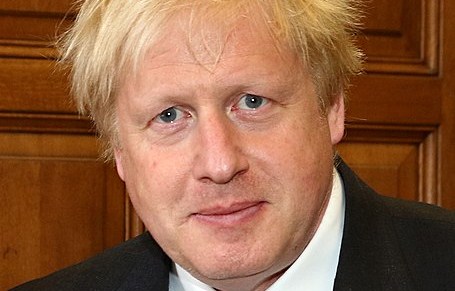30 April 2020
Boris
The man for the job?
By Robert Kilconner
Newspaper columnists should make you think and certainly that was the achievement of whoever it was who recently said that Boris Johnson was the wrong man in the wrong job at the wrong time. Alas, I have forgotten who they were, or where they said it, but it was clearly meant as a criticism and it is worth thinking about.
I suspect they began with the view, commonly expressed, that the government’s initial reaction to the pandemic lacked vigour, something which has cost lives. Probably that is right and perhaps Jeremy Hunt or a politician more focused on the health sector would have done better. But that is under the bridge, the relevant question now is not whether Johnson had the right qualities to decide when to impose the lockdown but rather whether he has those required to carry through the exit process. That is very different.
The plaudits for the handling of the early stages of the disease are likely to go to those who brought heavy restrictions in early. Go in hard and early, seems to have been a successful strategy, so those who went for the strong and sweeping approach will probably win the prizes (unless Sweden proves them wrong). The removal of the restrictions is a more subtle business altogether, requiring careful navigation between the Scylla of a revived infection on the one hand and letting the economy and indeed society as a whole be swept down a Charybdic drain on the other. Nitpicking, detailed work and nuanced judgements this time. What sort of man is suited to the task?
The first requirement is that he is needs to be free of political principles. Imagine if Mr Corbyn was in power now, a man with a real belief in a particular political orthodoxy. That belief could only have distorted his decision-making as he tried to fit the facts to meet a narrative rather than the other way round. Fortunately Mr Johnson is an opportunist rather than a political philosopher, so he can afford to approach the question from a purely practical perspective.
Second, he needs to be reasonably free of loyalties. One of the more depressing features of US politics is the extent to which the Republicans are said to be in hock to big business. What loyalties drive Boris Johnson? Well, loyalty to himself of course, and to his ambition of being world leader. Whether or not that is an admirable ambition in human terms, it has the advantage that it leaves scant room for bias in favour of interest groups.
Third, he has to be perceived by the public as understanding their point of view. No, I don’t mean that he has to come from a particular class, or ethnic group, or be a woman, or anything like that. In fact Mr Johnson’s education and background are very privileged compared to that of most of the electorate, but social jealousy plays a remarkably small part in British politics and I doubt whether any, apart from those who are already his enemies, will really care about that. The question is much more whether they think that the values by reference to which he will make judgements are not too far from theirs.
There of course good humour and bonhomie are advantages. Whereas Mrs May concealed her feelings in a way which made it hard for the public to empathise with her, Boris wears his on his sleeve. Yes he is emotional and bumptious, sometimes irritatingly so, but he is no class warrior. You cannot imagine that he hates people who disagree with him or tries to set one part of society against another. He is a big tent man by instinct and in this he is not far from the public.
So far so good as far as temperament goes, but then what about competence? Is he too light on detail, too relaxed? That is certainly the criticism levelled at him over his handling of the early stages of the pandemic but is it likely to be a problem going forward? It is hard to imagine that he is not fully alert to the dangers and, in any case, he has some very active people in his team. Gove and Sunak are clearly vigorous and intelligent ministers and he has at his right hand the mercurial Dominic Cummings who put the edge on his strategy for pushing Brexit through. Like him or loath him, he is no sloppy thinker.
So far, so good, perhaps, but what about balance? Does he veer too much to the bold or to the cautious? Despite his rumbustiousness I would put Boris down as a fairly cautious decision-maker and there are two things which may reinforce that. One is a consciousness that his administration was too relaxed at the beginning of the crisis pushing him to compensate with an overcautious approach now. The other is that he’s just come out of hospital and it is likely that his illness will have left some marks upon him. His colleagues say that it has not affected his confidence but they would, wouldn’t they? Let’s just hope to God that they are right. We do not need indecision now.
Is Boris is the right man for the next phase? We’ll discover in due course but actually his success or failure will depend on a much bigger question, the one Napoleon would have asked. Is he lucky? That’s what we’d all like to know.


